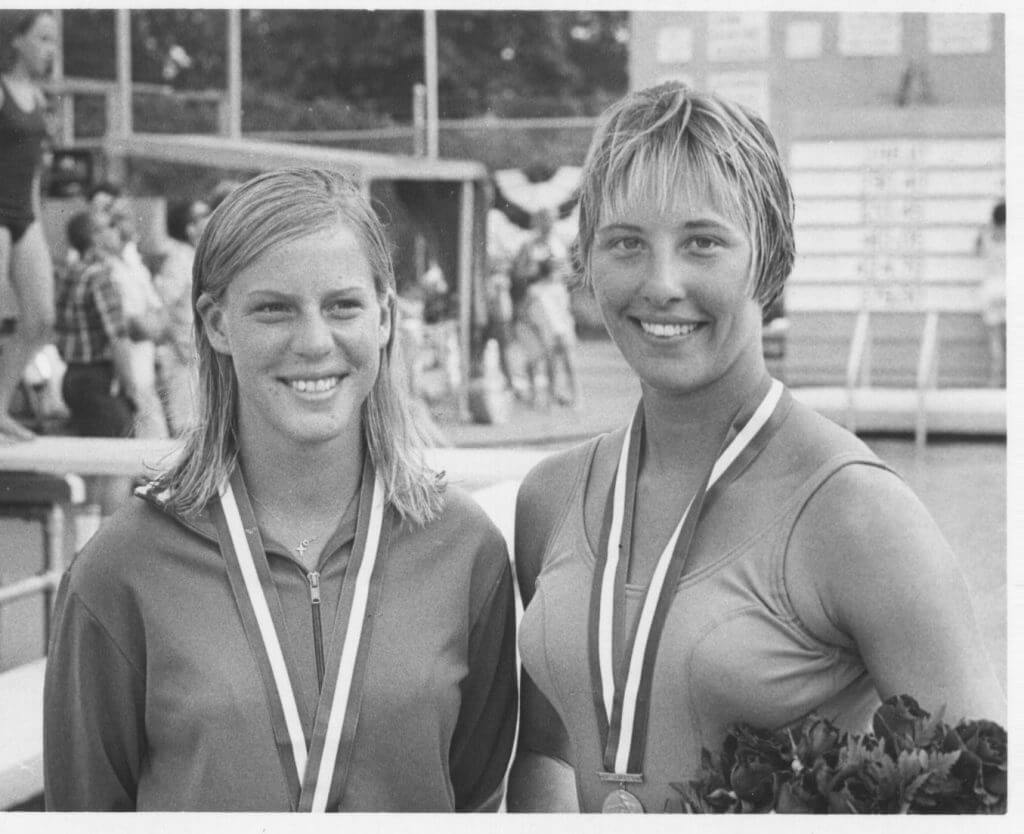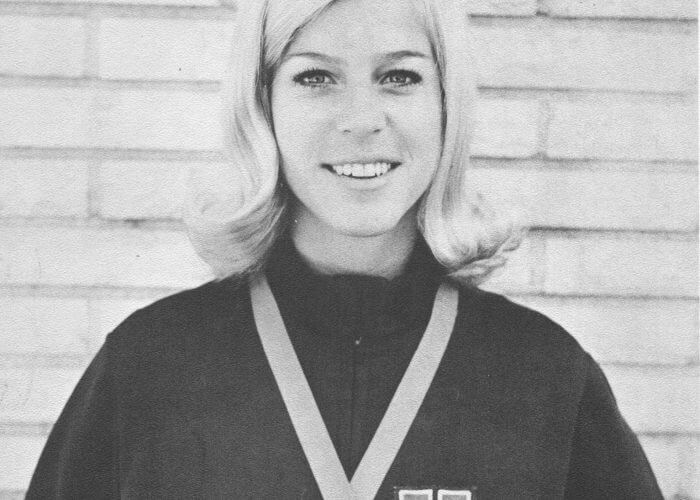50 Year Lookback of 1968 Mexico City Olympics: Micki King Hits Board – Opens Door For Sue Gossick

Each day through October 26, Swimming World will take you back 50 years to the 1968 Mexico City Olympics, and will re-tell the stories of those Games through archived meet recaps via the Swimming World Vault.
In the diving competition, the United States won both the men’s and women’s springboard events. Bernie Wrightson who had just missed the 1964 team, dove with great consistency. His coolness and byplay with the spectators while awaiting to execute his dives only confirmed his confidence that he was going to win the gold. Italy’s great Klaus Dibiasi moved in ahead of Jim Henry for second. Sue Gossick, who had made the U.S. team by the narrowest margin after striking the board in the Trials, showed her class to win the springboard event with Russia’s Tamara Pogozheva second and Keala O’Sullivan, USA, third.
October 18, 1968
Women’s 3m Diving
After a terrific preliminary round in the women’s 3-meter diving, Micki King, 24, USA, went into the finals leading with 98.17, after hitting an inward one and a half somersault pike for 17.38. Tamara Pogozheva, USSR, 97.50, Sue Gossick, USA, 97.32, and teammate Keala O’Sullivan, 95.58 trailed in order. Keala dropped in a one and a half layout for the prelim’s highest total of 18.46.
The women’s 3-meter diving final was a study in consistency and disappointment as the 20-year old Gossick came from third to win the gold medal with 150.67 points. Her final three optional dives were a forward two and a half somersault, pike position (16.79 points), reverse one and a half, layout position (17.68), and a one and a half somersault with one and a half twists, 2.6 degree of difficulty (18.98 points)
Micki King, who was leading after the 8th dive, hit the board with her forearm on the 9th dive and dropped into 2nd place. The hit, not noticeable from the stands, fractured Micki’s left arm causing her to blow her 10th and final dive. She wound up fourth with 137.38 points.

Photo Courtesy: International Swimming Hall of Fame (ISHOF)
Dick Kimball, Micki’s coach, who was at the Games, said, “She was in shock and didn’t have it for the last dive. That’s why she blew it. It’s a shame, but she still made the Olympic team, which is no loss.”
Micki later said, “I was dizzy after the second to the last dive. My arm was numb. I didn’t know what I was doing. I don’t even remember doing my last dive.”
Sue Gossick stated, “I knew something had happened, I heard her hit.”
Second went to 22-year-old Tamara Pogozheva, USSR, with 145.30. Miss Pogozheva was 0.18 ahead of Miss Gossick after seven dives. The Soviet diver scored the highest for any dive as she received 20.28 points including a nine on her final dive, the same Miss Gossick performed. She might have won had not her eighth dive, a forward two and a half pike, received only 10.80. Her ninth dive was awarded 16.72.
It was the highest Soviet springboard finish in the Olympic Games. Miss Gossick said of Miss Pogozheva, “She is an excellent diver. I was afraid of her all the way.”
Gossick, 20, and 5’6″, 115 pounds, said,
“I save my best dives until last like in all national or international competition so I am familiar with the patterns. I use the ones with the highest degree of difficulty. The one and a half sommersault with one and a half twists was not my best dive. I hit it better at the Pan Am Games.”
Sue mentioned she has no plans for the future regarding competition, only that she wants to ski.
Miss Pogozheva remarked, “I was prepared to win, but in the training immediately before the Games, I really didn’t feel I’d win here.”
O’Sullivan, 17, was a gracious bronze medalist. “I was shocked I even got this far. I was walking around congratulating everyone and someone said you’ve got third now’ (after King missed her last dive) and I just couldn’t believe it.”
Sue’s coach and father, Dr. Gustav Gossick, said, “She’s a consistent diver. Maybe she doesn’t get the eight’s or nine’s likesome divers, but she is a steady diver and steadiness certainly won here.”
Third went to Keala, who, with 145.23 points was only a splash behind Miss Pogozheva. Miss O’Sullivan, U.S. National and Olympic Trials Champion improved from fourth with consistent dives worth 14.85, 17.42 and 17.38 points. Miss King, who lead by .85 of a point after the prelims, was still the leader over Miss Gossick 114.50 to 114.11 with two dives to go, and was still second behind Sue b y 2.2 points going into the last dive, but missed the same dive Miss Gossick and Miss Pogozheva attempted and received 7.80 points to drop to fourth.
Micki had her arm in a cast the next day and had the arm treated at home after the Games were over.
1960 and 1964 Olympic Champion Ingrid Kramer Gulbin, East Germany, 135.82, was fifth followed by Vera Baklanova, USSR, 132.31, Beverly Boys, Canada, 130.31; and Elena Anokhina, USSR, 129.17.
The top eight Olympic divers were either from the United States or Iron Curtain countries, with the exception of Miss Boys.
Medalists:
- Sue Gossick, USA, 150.77
- Tamara Pogosheva, URS, 145.30
- Keala O’Sullivan, USA, 145.23
Historical Notes:
- Gossick’s gold medal marked the ninth gold medal out of a possible eleven in the women’s 3m diving event at the Olympics for Team USA.
- The Americans won the next two gold medals at the Olympics in this event but have yet to win an Olympic gold medal in women’s 3m diving since 1976.
- Micki King rebounded four years later to win the gold medal in 1972.
- Pogosheva’s silver medal was just the third medal won by the Soviet Union in diving and the first silver medal for the country in diving.
Read More on the 1968 Olympics
- (Day 1) Mark Spitz’s first gold medal
- (Day 3) Major upsets rock pool on day three



